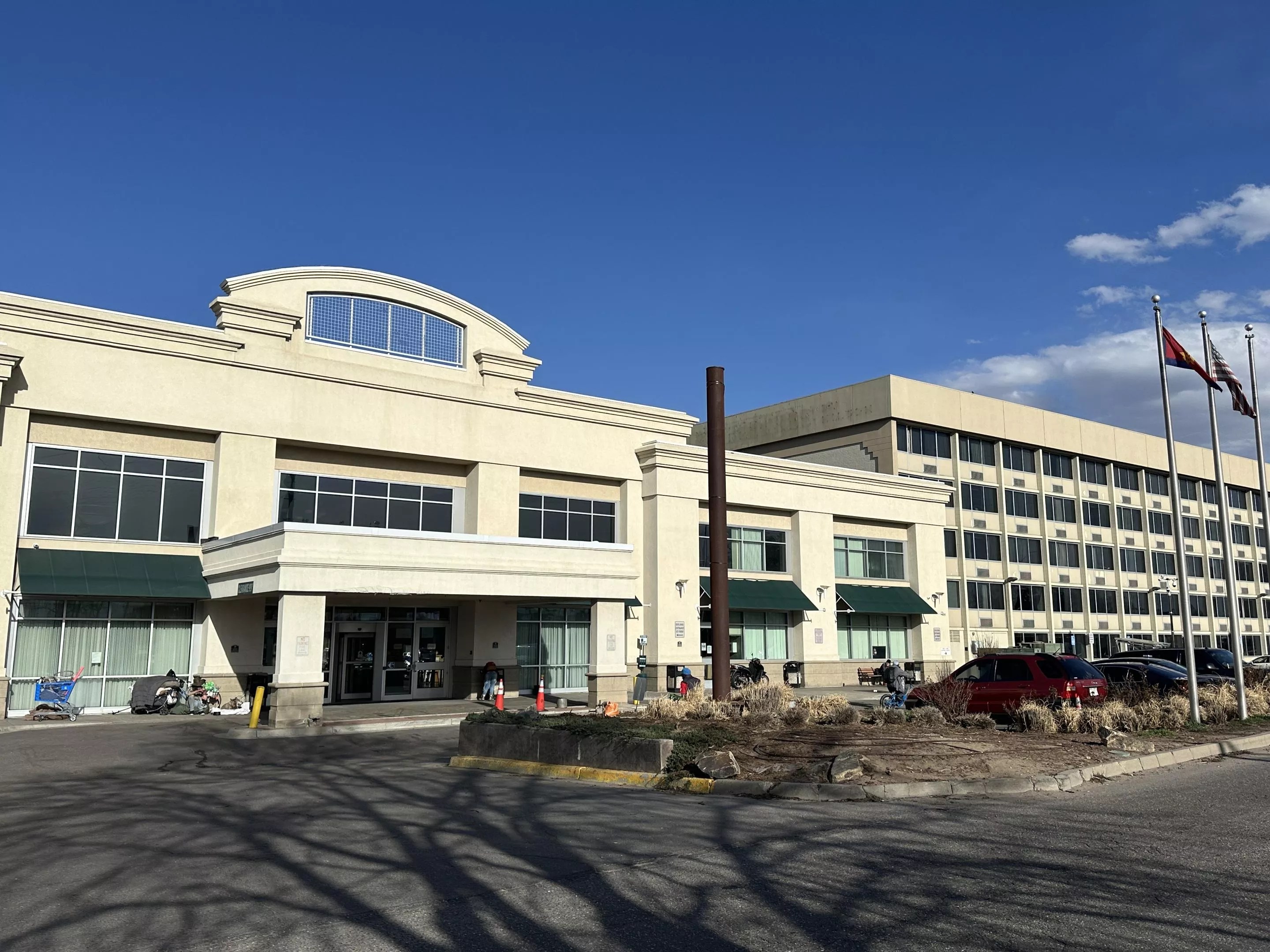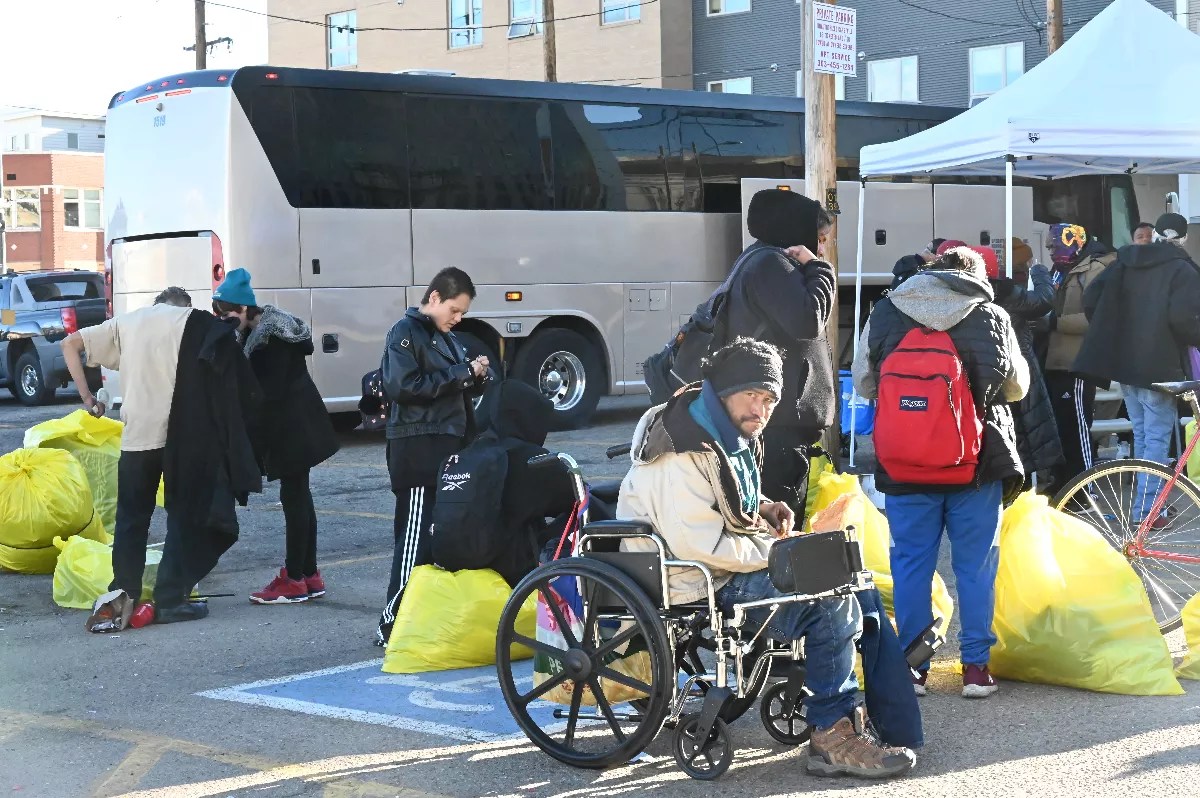
Chris Perez

Audio By Carbonatix
Denver’s homeless shelters need better security, improved monitoring of spending, and more protective measures for residents’ sensitive information, according to a report from the Denver Auditor released on November 21.
The audit looked at shelters operated or funded by the City of Denver between 2022 and March 2024, selecting eight shelter provider contracts out of 23 that were active during that time frame. Four of the shelters were either former hotels or micro-communities set up as part of Mayor Mike Johnston’s homeless initiatives, known as House1000 and All In Mile High.
According to the mayor’s office, the city moved more than 2,000 people indoors through those two initiatives. Now, more than 1,000 people are living in hotels leased or purchased by the city and operated by homeless service providers through contracts with Denver. The Department of Housing Stability (HOST) manages the contracts with service providers.
“The audit found the department is not able to ensure shelter providers comply with required security and non-discrimination standards at some homeless shelters,” Denver Auditor Tim O’Brien wrote in a letter accompanying the report. “Additionally, the audit found the department is not tracking overall shelter-related spending, ensuring invoicing contract requirements are followed, and properly managing sensitive information in one shared drive.”
In a statement accompanying the audit, O’Brien says that HOST’s “poor organization is negatively affecting operations at Denver’s shelters.
“These issues need to be addressed, because vulnerable populations are at risk,” he adds.
The city currently owns three former hotels that are now shelters – two purchased under Johnston this year for $64 million and one under former mayor Michael Hancock – and has three active leases for other hotels. Many of the hotel purchases were made with COVID relief funds from the federal government as part of the American Rescue Plan Act. ARPA funds will expire in 2025, however, eaving Johnston without a source of funding that he’s relied on heavily, an impending challenge he’s acknowledged.
The audit found that since 2022, HOST spent nearly $60 million from the Homelessness Resolution Fund, which raises money through a sales tax approved by voters in 2020, but details on how the money was spent were murky. According to the audit report, HOST needs to improve its tracking of spending in areas where it spends the most: community and social services. This includes career development and case management, construction services and loans to contractors, temporary housing assistance, leases and rentals of properties, and buying land parcels.
According to O’Brien, the lack of security at city-funded or operated shelters “contributed to a tragic event at one new shelter,” referring to the March double homicide at the former DoubleTree hotel at 4040 Quebec Street, which is now used as a shelter. No one has yet been charged with those murders, according to the Denver Police Department.
The DoubleTree, which the city now calls the Aspen Shelter, wasn’t meeting security-related contract requirements at the time of the incident, according to the audit. The city had contracted with the Salvation Army to operate a shelter at the former hotel with a security budget of $807,000. But several months into the deal, the Salvation Army still had not hired a contractor to manage a security presence at the property. In March, two people staying at the shelter were shot and killed. Weeks later, a third guest was shot but survived. The city took over security at the property following the first shooting.
The city spent $43 million to buy that hotel, about a third of the $138 million Denver has spent during the past two years to lease or purchase hotels for homeless residents and migrants.

Homeless residents at an encampment in the Ballpark District prepare to board a bus that will take them to transitional housing on a December morning in 2023.
Bennito L. Kelty
At an audit committee meeting on November 21, Jamie Rife, the Denver chief housing officer and head of HOST, addressed shortcomings found in the audit. (Rife is the former executive director of the Denver Metro Homeless Initiative, a nonprofit that coordinates homeless services across shelters and providers in the metro area.)
“Safety is core to what we do,” she told the committee meeting. “We have already begun a lot of contract improvements for this year…ensuring we do have a plan in place. We’re also working on shelter standards, which will be incorporated into some of this as well.”
Rife also touted plans for a “shelter success task force that is comprised of staff at shelters as well as people with expertise” to improve shelter safety.
According to the audit’s findings, some shelters had anti-discrimination policies that were “not sufficient,” and homeless residents at city-funded shelters are unlikely to have a reliable grievance process if they want to file a complaint about the shelter or its staff, the audit found.
“Shelters do have a grievance process, we do collect those,” Rife countered during the hearing. “We’ll have clear guidance for staff on who should be monitoring that, how we’re collecting those.”
The audit also reviewed a sample of forty invoices associated with contracts between the city and homeless service providers, determining that HOST has “vague” guidance for staff related to invoice payment timelines and qualifications. The department also lacks a proper review process to avoid mistakes like reimbursing contractors for the same thing twice or verifying that funds are available for reimbursement, according to auditors.
HOST doesn’t have enough staff in its accounts payable division, which monitors the invoice process, and the system it uses is “outdated,” the audit report concluded.
“We have augmented the number of staff we have in our accounts payable department,” Rife said. “We are re-streamlining and relooking at our invoicing process, making sure there’s the correct number of checks and balances.”
The audit also discovered that HOST has been storing the private information of its homeless shelter guests, including their names, contact information and addresses, on a drive that was shared with other city departments such as Denver Arts & Venues, Denver Parks & Recreation and Denver International Airport, which all had access to the information. Also in the shared information were checks from shelter service providers with bank account information.
HOST was reportedly “unaware that city employees outside of their department had access to the shared drive,” according to the audit, which added that HOST should have “engaged with Technology Services to conduct a privacy assessment” after the information was shared.
Rife told O’Brien that HOST has “locked down” that information since the audit brought it to the agency’s attention, but is still looking for “a long-term solution” to storing and protecting information.
In April, when the audit began, O’Brien told Westword that the city shelters had not been audited since he had taken office, back in 2015. At the committee meeting, auditors said the point of their work was to make sure the city isn’t wasting money and has a solid shelter system.
“We conducted this audit because of concerns we felt from various risks, such as the well-being and safety of those individuals experiencing homelessness, the strain on resources and the financial impacts to the city,” said lead auditor Anna Hansen. “The need for city shelters continues to increase, so the purpose of this audit was to assess the city system for sheltering people experiencing homelessness.”
HOST defended its work in a November 21 statement on the audit’s findings:
“The audit fails to accurately characterize how the All In Mile High unsheltered homelessness initiative has made a lasting difference for unhoused residents and our community as a whole. The City and County of Denver’s unsheltered homelessness response has been recognized nationally by the U.S. Interagency Council on Homelessness as a best practice for humanely and effectively responding to encampments.”
O’Brien stood by the audit’s findings in his own November 21 statement, saying that HOST uses “ineffective systems for monitoring shelter provider performance” and “failed to ensure safety measures at one shelter, track overall shelter-related expenses, and enforce invoice contracting requirements.”